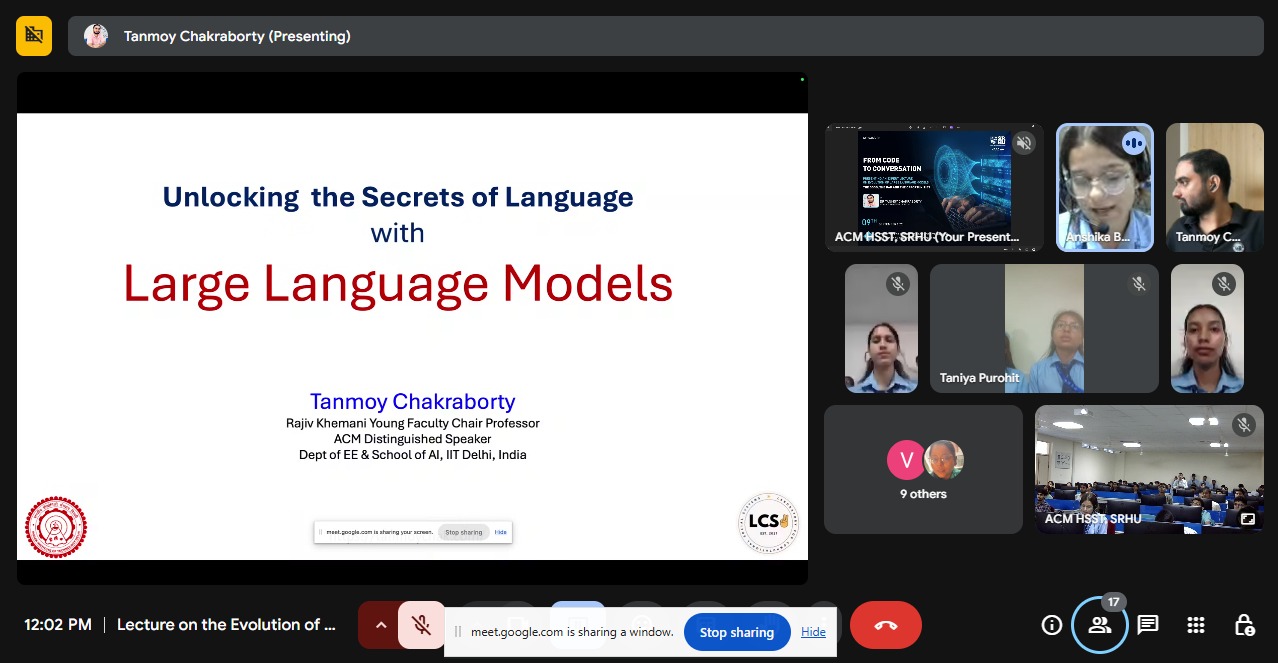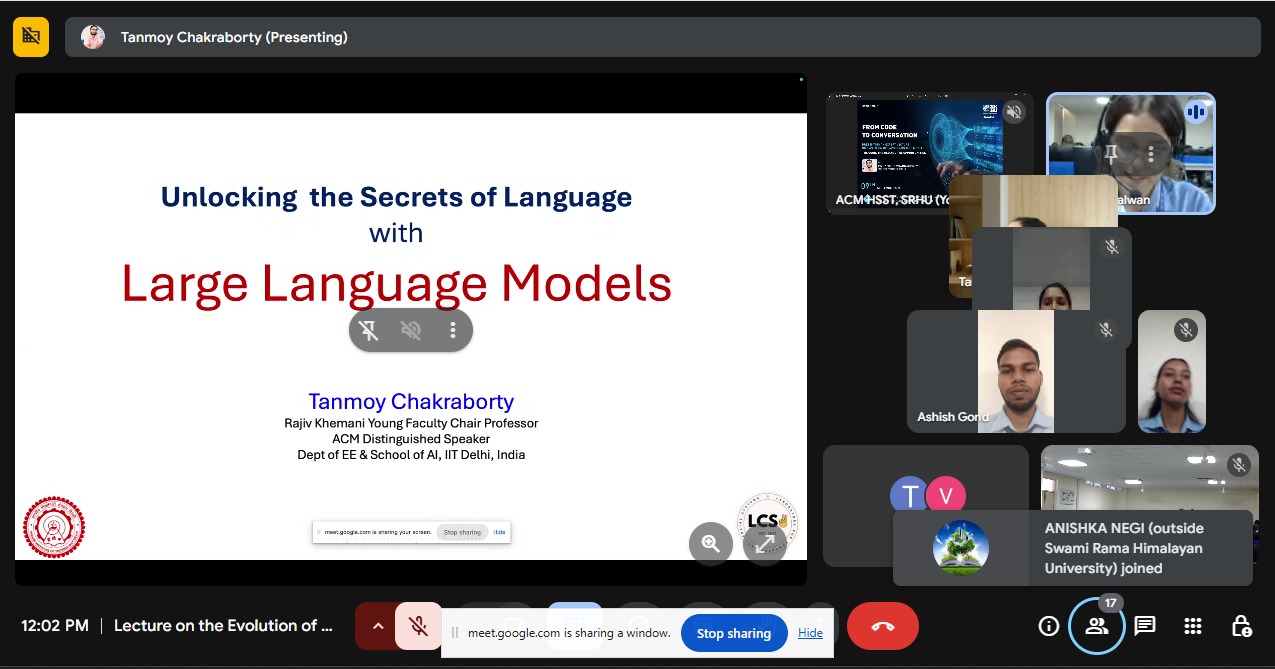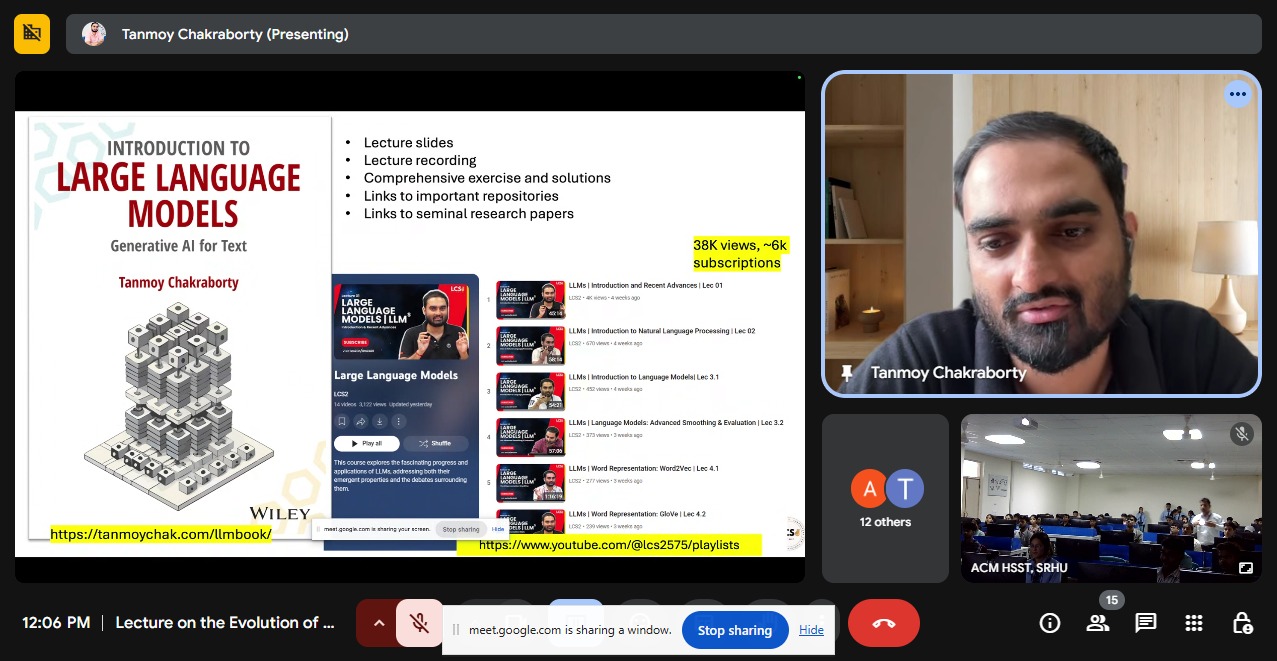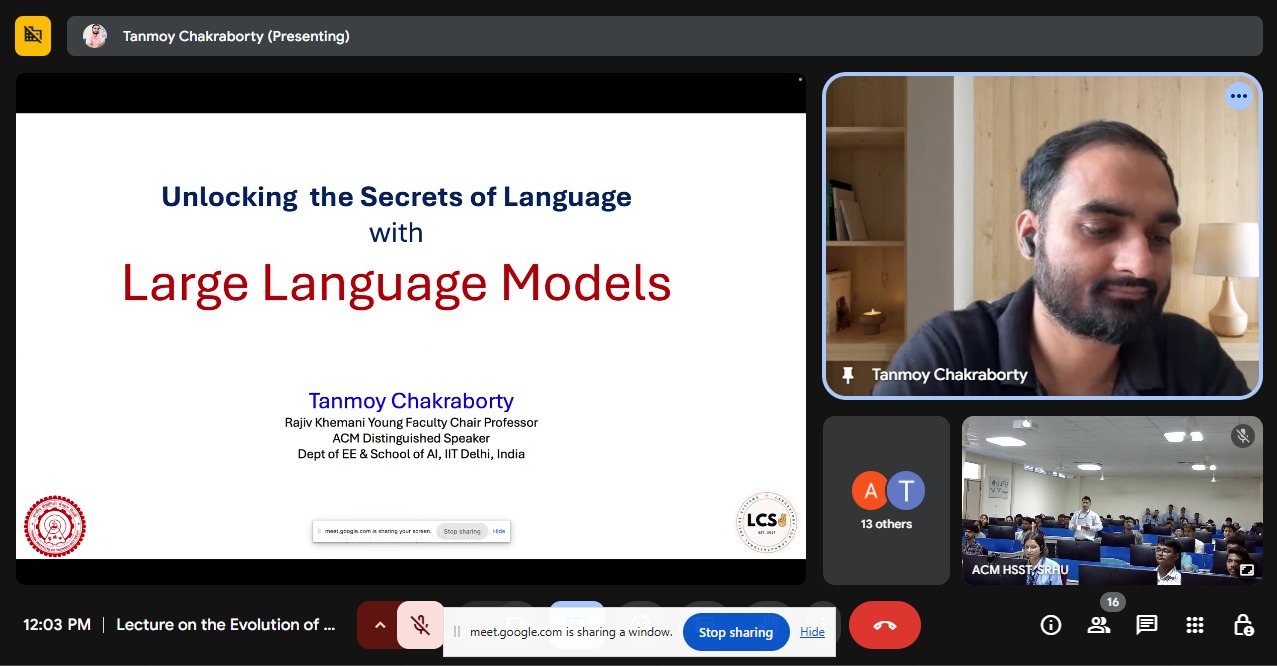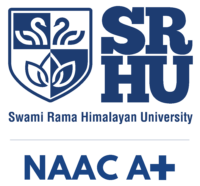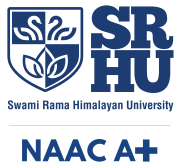Published on: September 9, 2025
Report on Guest Lecture on Large Language Models (LLMs)
Date: 9th September 2025
The ACM Student Chapter organized a Guest Lecture on Large Language Models (LLMs) to give students insights into the rapidly evolving field of Artificial Intelligence (AI). The main objective of the session was to enhance participants’ understanding of LLM fundamentals, architectures, applications, and the ethical considerations associated with AI technologies.
The session aimed to introduce students to the basics of LLMs and their applications in Natural Language Processing (NLP), highlight real-world use cases and ethical challenges, and motivate students to explore research opportunities, projects, and potential career paths in the field of AI and ML.
The lecture, delivered by Prof. Tanmoy Chakraborty, covered the evolution of language models and transformer architectures, explained the mechanisms of attention in LLMs, and discussed their applications in text generation, summarization, and conversational AI. He also highlighted limitations such as bias, data privacy concerns, and ethical implications, while sharing insights on future trends and career opportunities in AI and ML.
The event attracted over 70 students and faculty members, creating an interactive environment where participants actively engaged in discussions and asked questions. The session sparked interest among students to work on AI-driven projects, participate in competitions, and seek internships in related domains.
As a result, the lecture significantly improved students’ understanding of LLM workings and their role in AI technologies. It also inspired greater interest in research, skill development, and career opportunities in the AI/ML domain while strengthening academic-industry collaboration through expert insights.
In conclusion, the Guest Lecture successfully broadened students’ knowledge of LLMs and AI technologies. The ACM Student Chapter plans to continue organizing such informative events to promote innovative learning and technological advancement among students.


